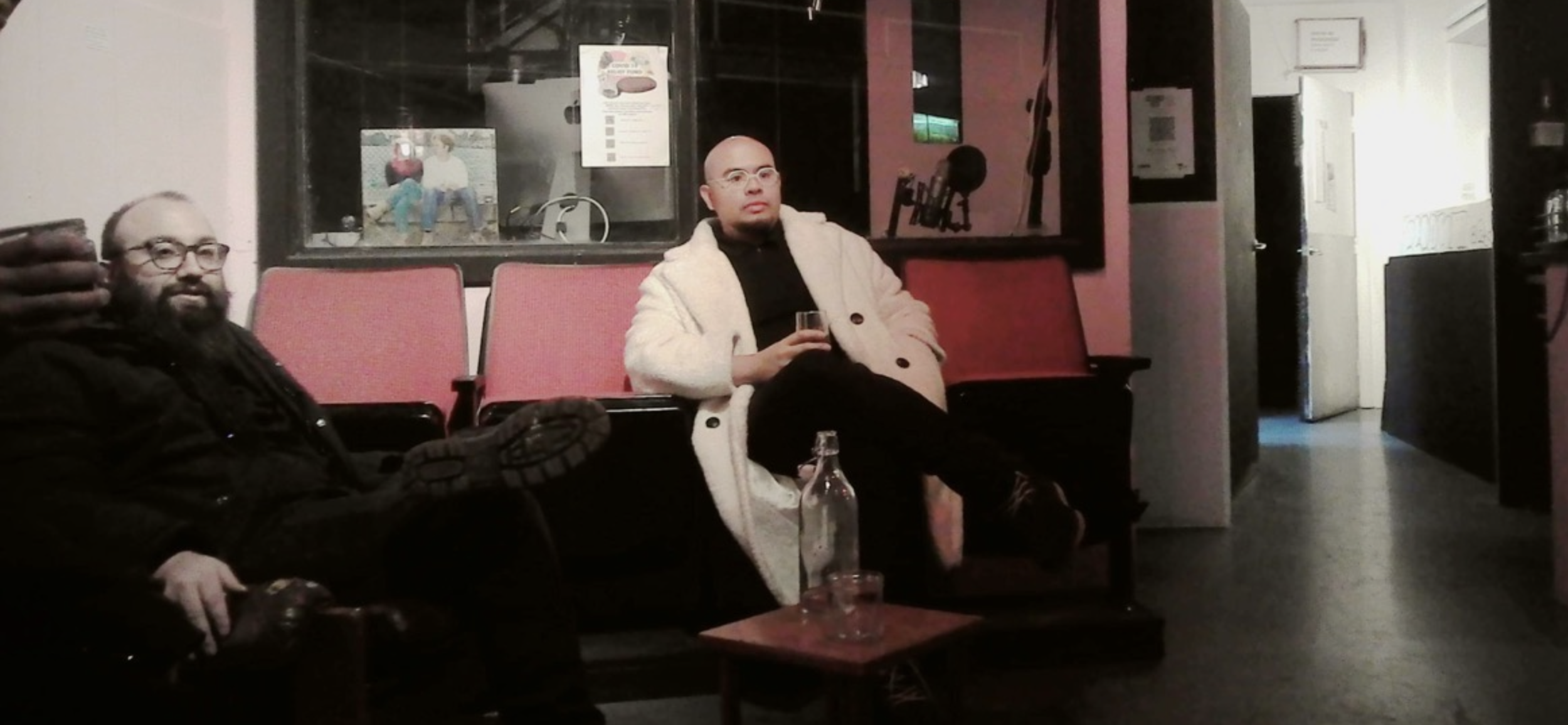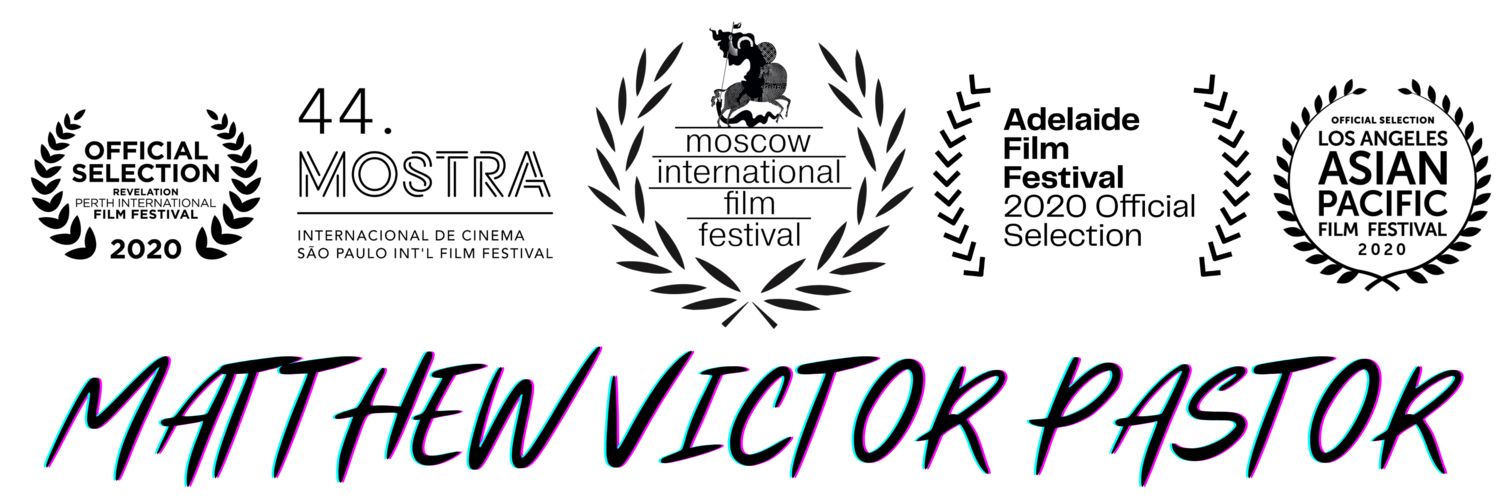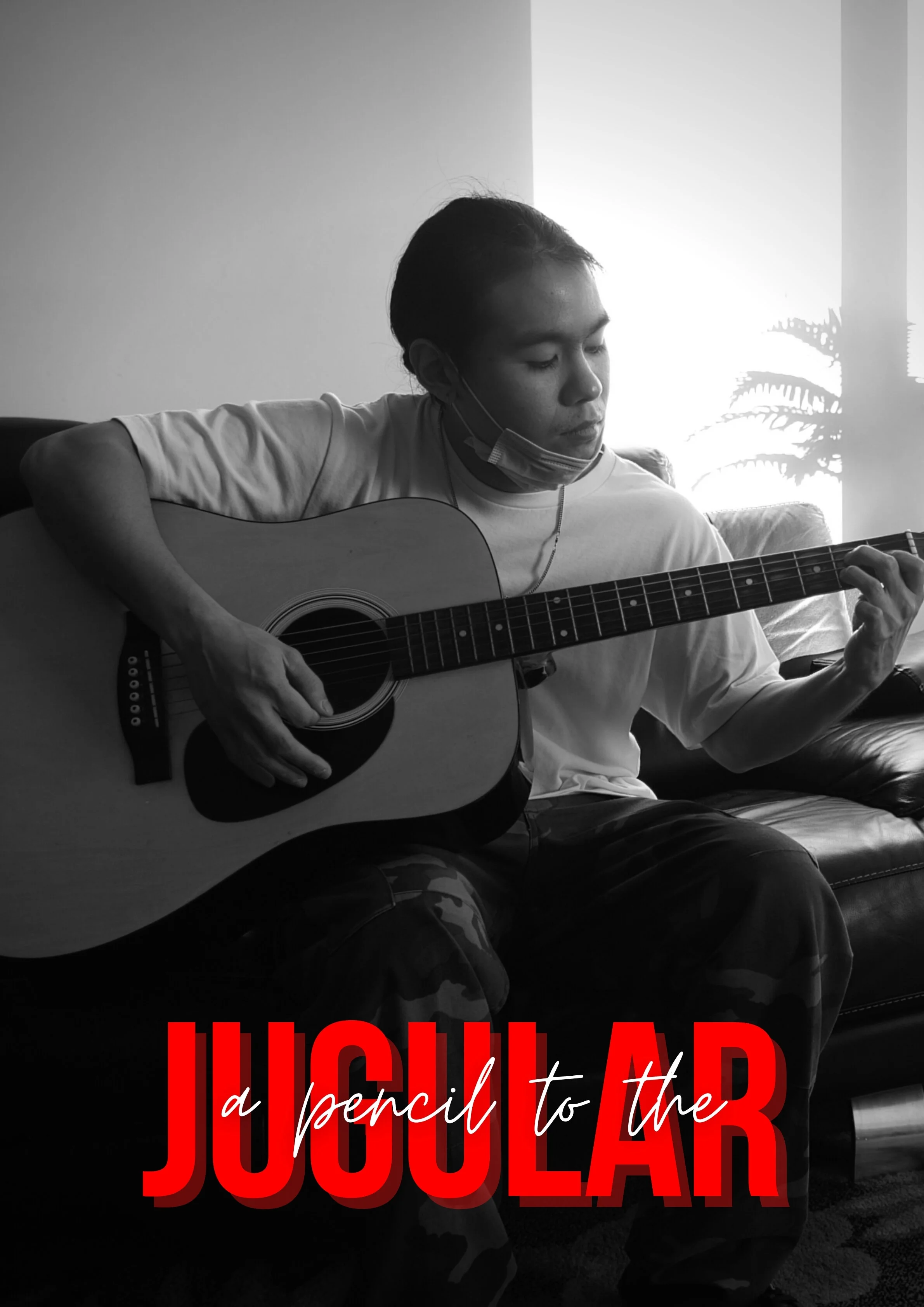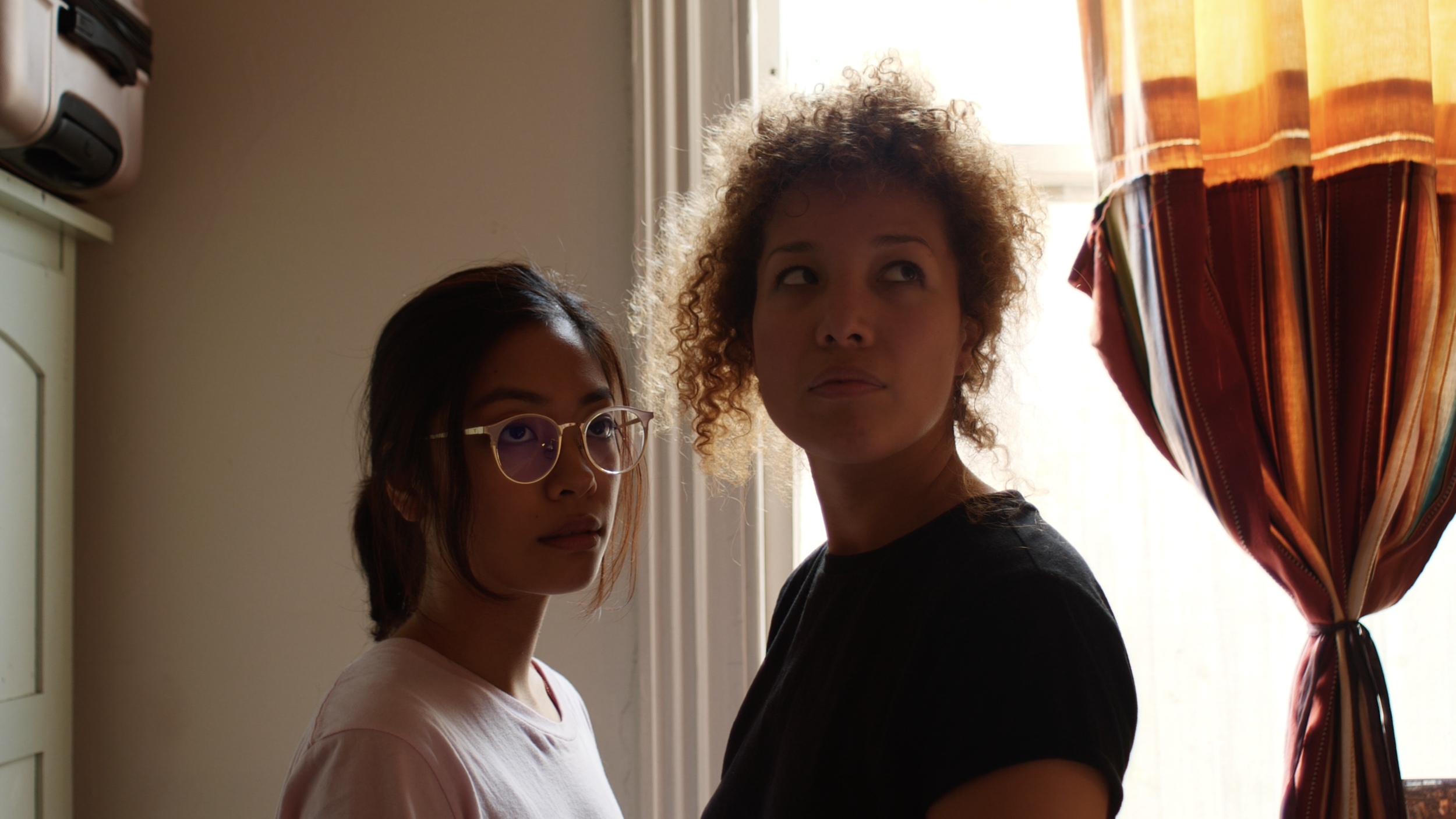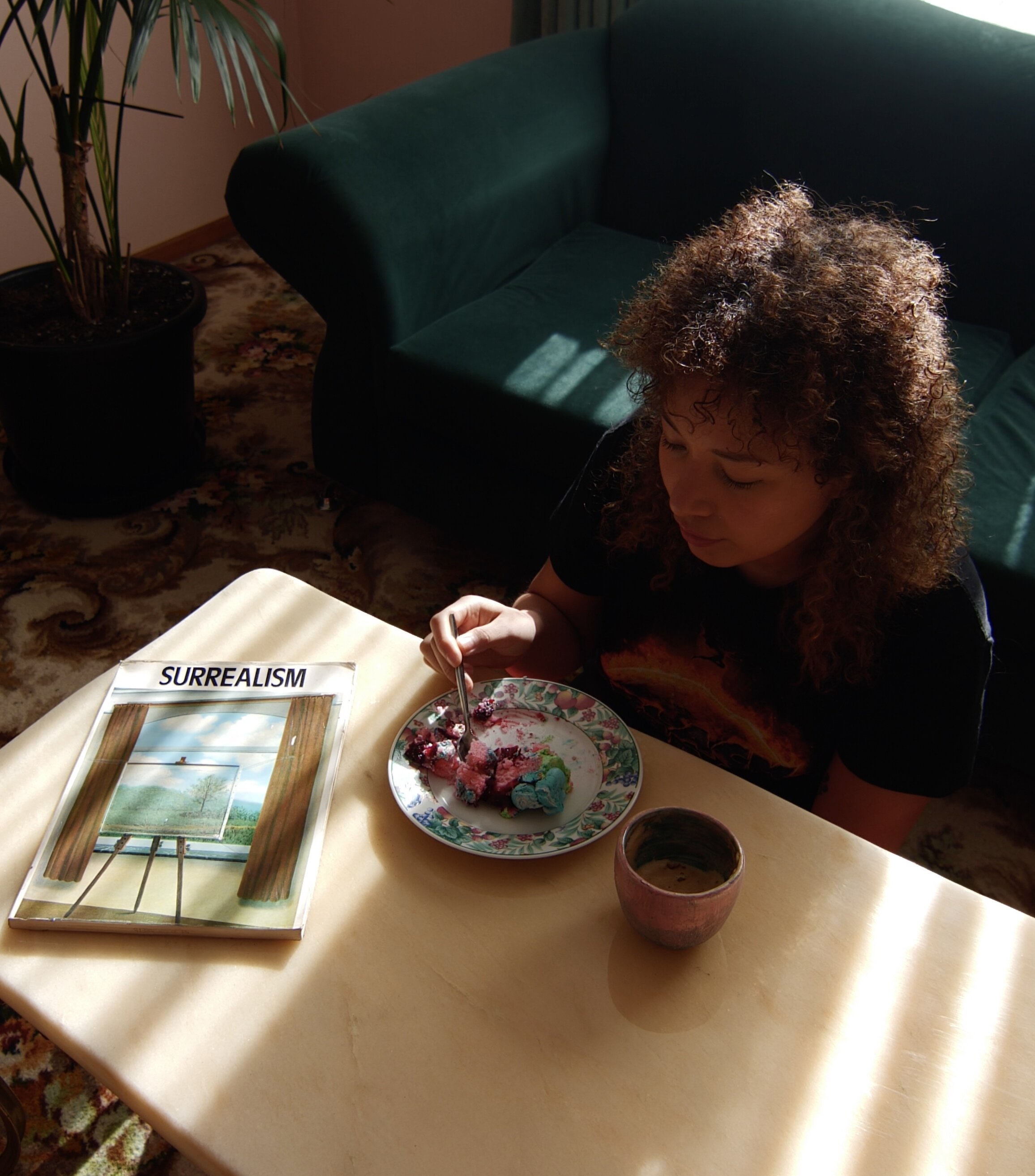A PENCIL TO THE JUGULAR
FUTURE / PRESENT / PAST
March 2020, a worldwide catastrophic event unfolds, as an ensemble of young migrants lives fall apart. Libra stares down the drop of a tall building, Razor deals drugs for flights back to the Philippines, Amanda is the survivor of an assault, Ying arrives from China, and Lit Phil is on the run. Meanwhile a young man with dark desires roams the streets. Through the chaos these lives will cross paths and a pencil will be taken to the jugular.
World Premiere:
43rd Moscow International Film Festival, April 2021
U.S Premiere:
25th Urbanworld Film Festival, October 2021
Australian Premiere:
25th Revelation Perth Film Festival, July 2022
Produced by Evangeline Lee, Lorena Zarate, Matthew Victor Pastor & Daniel Schultheis
Written by Lorena Zarate & Matthew Victor Pastor
Directed by Matthew Victor Pastor
Starring: Lorena Zarate, Felise Morales, Shirong Wu, Philip Kim, Akira Matsuda, Mikhail Sheldon, Matt Furlani, Maria Cruz, Daniel Paonessa, Corey Reason, Harry Kim, Ausra Vekteryte, Bridget Moy O’Brien & Yuchen Wang.
Soundtrack by Andrew Tran (Fergus Cronkite)
Associate producer Ella Tabilog
Sound Design by Akira Matsuda
Production Design by Ella Tabilog & Esther Cheng
116 mins / 2021 / Mexico / Malaysia / Australia
TRAILER: CONTENT WARNING
Australian film A Pencil to the Jugular by director Matthew Victor Pastor has been chosen to screen as part of a special program ‘Lockdown’ at the FIAPF-accredited 43rd Moscow International Film Festival.
FILMINK MEDIA RELEASE, APRIL 2021
The Lockdown program at the prestigious festival highlights some of the world’s most interesting films made about the global Covid-19 pandemic.
Pastor’s story revolves around the anxieties of young migrants and students caught in Melbourne during the lockdown of 2020, many left with no financial support and uncertain about their future. The story also tackles themes of xenophobia and racism toward people of Asian heritage living in Western countries that was particularly prevalent around the time of Covid-19.
As far as filmmakers go, Pastor is an anomaly in the Australian cinema landscape independently churning out an average of two feature films each year made independently with his regular ensemble of diverse actors. The pandemic didn’t stop Matthew being a prolific filmmaker, it merely changed the way he made films in a socially-distanced and even at times remote way.
Despite the unfortunate circumstances of 2020 Pastor was able to complete the 2020 Trilogy, of which A Pencil to the Jugular is part two (“present”) of the trilogy alongside The Neon Across the Ocean (91 mins) and the yet-to-be-released Plans that They’ve Made.
The Neon Across the Ocean recently had its world premiere at the 44th Sao Paulo International Film Festival last year alongside other pandemic themed feature films by Ai Weiwei and Abel Ferrara.
People are starting to pay attention to Pastor’s films, which continue to push cinematic language in new ways, while at the same time exploring the experience growing up or living in Australia.
His short film Fun Times penned by AACTA nominated writer Llewellyn Michael Bates recently won Best Film (National) at the Canberra Short Film Festival. The diverse production received funding from Screen Australia, Film Victoria and AFTRS and since 2020 has played 20 film festivals (including Academy and Goya qualifiers).
Pastor is fiercely loyal when it comes to the people who make films with him, and also about growing opportunities for diverse creatives both in front of the camera and behind the screen. His films are typically made with an almost entirely Asian cast and crew.
A Pencil to the Jugular stars an ensemble cast from Philippines, Mexico, Korea & China. Pastor also penned the screenplay with Lorena Zarate (who also stars) based on their shared experience of what international students had to live through during Covid-19.
Zarate plays Libra, a displaced international student who stares down the drop of a tall building, as her world slowly falls apart. A second narrative tells the story of Amanda (Felise Morales) who is the survivor of an assault.
Says Pastor “Violence towards Asians has grown since the global pandemic, and this film is only a reflection of that unfortunate reality. In Australia, we’ve seen waves of racism based on fear and ignorance. Despite the trauma this causes large sections of the community, I hope that all of Australia’s multicultural communities can stand in solidarity and continue to tell our stories on screen, that they will have an effect on creating a more harmonious and tolerant society in Australia, and that these stories will resonate the world over as a beacon of the talent and creativity that exists in this country. Through our art we can take a “pencil to the jugular”, and write ourselves into history.”
July 2, 2022
INQUIER.NET
PH movie on antiracism screened in Russian fest
Pastor likewise shared the experiences of his producer, Evangeline Lee, also pre-COVID time, that also made it to the script of his next film project.
“One time, she was pushed off a tram by a white Australian man and her knee was bleeding. Another time, she was pushed onto the concrete by a white Australian man in a business suit, also bleeding,” Pastor shared with Inquirer Entertainment. “I feel we should talk about these experiences because they encourage people to stand up as opposed to accepting this as normal.”
“It’s surreal, and of course, I wish I could be there,” said Pastor. “To celebrate, I wore a suit and we green-screened myself over images of the event. It’s like teleportation! On opening night, we went to eat at Tian38, one of my favorite Asian restaurants. It was simple, no flight, no party, no red carpet, but some nice food/drinks and a hangover in the morning while I wrote emails.”
He further said: “I’m still happy to have this major accomplishment, but in this new world, it’s a very different experience. I’ve learned to just be patient, reframe myself, and to remind myself why I do this. I do it because I love film.”
FULL ARTICLE
Felise Morales & Lorena Zarate
PELIKULAMANIA:
“Filipino filmmakers are making their mark at the 43rd Moscow International Film Festival (MIFF). Aside from acclaimed director Brillante Mendoza who is Chairman of the MIFF Competition Jury, and Lav Diaz in the Masters program, another Filipino has achieved a feat at the prestigious filmfest. Filipino-Australian director Matthew Victor Pastor’s film on anti-racism “A Pencil to the Jugular,” has been selected for the MIFF’s Lockdown program; this special lineup includes some of the world’s most significant movies made during the global COVID-19 pandemic.”
Indie filmmaker brings Filipino-Australian identity to the big screen
Interview by Charisse Garcia in Philtimes (25/04/2021)
Q: Can you tell us about your Filipino heritage? Who are the Filipino directors and artists you look up to? How has it challenged and surprised you as a film director to depict our Filipino culture in your film making?
A: In Australia, I am dubbed a prolific director, but by Philippines standards, I think that title doesn’t cut it. The Filipino directors have a work flow off the charts. Khavn, for example, who makes many films (or as he says ‘not a film by Khavn’).
I look up to filmmakers who are singular. There is so much noise out there. As a young person with a special set of skill, it is my responsibility to try to keep the art of cinema alive because it literally saved my life. Depicting our culture from my perspective has always been a challenge.
As a filmmaker who makes film predominately in Australia, my stories are seen through a more conservative lens. The main challenge is contextualising us in the Australian landscape. I’m here to change that expectation, that depiction, and I do it in real life and film.
I have a whole scene deconstructing this in my new film where an Asian filmmaker is grilled for his depiction of Asian culture in Australia. There is a lot to unpack here as a Filipino-Australian director but I feel we should tell all sorts of stories, even the uncomfortable ones. I knew going into this when making subversive work that if I focused on one feature film a year, I would be dismissed, so I chose to direct three or so a year consistently so that it wouldn’t be an anomaly as opposed to a body of work. If there is no context for Filipino Australian filmmakers, I aim to change that through a filmography which rivals the hard-working Filipinos back home who I am so inspired by.
Q: You collaborated with a diverse group of people including, Filipino-Australian artists. Why is it important for you to be working with people of the same heritage? What are your future plans and how is the third installment going?
A: In Australia there is a lack of Asian stories, in general. I feel that we deserve to be written into history. In a place that’s spent so much time minimising our pain, I’m just taking the story and making it visible. Filipinos are so creative and expressive, so I feel we should follow those impulses.
My films and my lifestyle give agency to that. The third instalment is a documentary co-directed by Malaysian Evangeline Lee titled ‘Plans That They’ve Made’. We follow Evangeline as she wanders through a vast empty city. It was important for us to lens up the migrant experience. I showed an Asian friend a rough cut and they cried, so I know despite its minimal aesthetic, the feelings are all there. It’s a very different film to ‘A Pencil to the Jugular’, more like a poem about how it feels to be between worlds. I think after all the lockdowns and the ongoing pandemic, we all can relate to this feeling.
Read full Q & A
DIRECTORS STATEMENT
2020:
A Pencil to the Jugular is nearly complete. With a total runtime of 2 hours we have one more day of shooting left, but we had to cancel because of a new imposed lockdown in Melbourne. In 6 weeks I hope to shoot the final scene. I'm proud because we have captured the before and after of an important time in history. This movie was made before, and during the pandemic which is still happening. It is honest and raw, and since the lockdown we have seen other major events in our world unfold (BLM protests, second waves of COVID) and right now we are only half way through the year. I'm proud to have stuck to making this film despite the strict Victorian COVID-19 social distancing laws, amongst other things. We could have stopped, packed up and gave up but we persevered. Going into it I knew with the virus as a backdrop, I could tackle the still prevelant virus of prejudice in our society. The hardest part of the production was between March - May because we could only do essential things. I spent that time editing the footage that we already had, and planning the next part of the shoot. Soon the lockdown opened up and we could have gatherings of up to 5 people. I completed the last 40 minutes of the film with no crew except myself (I did the cinematography, sound, production design and sanitation which was a very hard task). For me making a film bare bones was essential to the safety of everyone involved considering the current pandemic. Safety first. I currently have one day of re-shoots as I write this, which are now cancelled again because of a new lockdown (as of 15th July 2020).
With the films fictional narrative split between February and March 2020, the reality is that we are able to see the shift, the last captured moment of a pre-covid society. I was so busy on the shoot during February, that I honestly could not see a full lockdown happening. None of us on this film could. Within two weeks the whole world changed so quickly, and so did the film. Our cast and crew international students and new migrants all adapted to the situation, and continued to make the film. The writing did itself, because our struggle was immediate. We were very lucky to have made a raw and honest film reflecting this important time in history. Now what is left of our pain is an important story about the real virus, prejudice.
Update 2021:
Worldwide the violence towards Asians is growing, and this film is only a reflection of that unfortunate reality. Despite the bloodshed, I hope we can stand in solidarity and tell our stories. Lets take a pencil to the jugular and write ourselves into history.
WRITER STATEMENT (LORENA ZARATE)
2020:
These are hard times for everyone. I wish I was with my family right now. I try to keep myself positive most of the time and I always think that things could be worse. I feel lucky to have that mindset because I really don’t know what's going to happen. Being in another country with a student visa and no job is hard, don't know for how long the money will last.
But this is not about me, this is something that is affecting the whole world, and the only thing that is left at the moment is to help people in need and keep creating. Without the arts, nothing would be worth it. Making this film has been my whole motivation during the last months, and not been able to continue with it breaks my heart, but I'm sure this is going to be temporary and we will be able to continue.
At the same time, it is rewarding to be working on something that people can relate too, and they know they are not alone in this. This is dedicated to all the people whom have lost their loved ones, people that are losing their jobs and have people that rely on them, people closing their business in which they have invested all their lives, and specially my friends that are desperately trying to go back home and they can't find a way out. Making a film during a global pandemic has been a challenge, but we hope our efforts help make everyone struggling feel less alone.
Update 2021:
It is now April 2021 and covid is here to stay, some places already had a third wave. I’m back in Mexico due to this whole situation and it seems it's never ending. Now I can see a different reality than the one in Australia. Everyday I hear of so many people dying due to covid, and sometimes people I know. When we embraced the situation we were living in the movie. I thought it was going to be something temporary, and didn’t realise how relevant it would be. I am proud of our work and of our team for never giving up and working hard through this project.
Lorena co-wrote, co-produced and stars in A Pencil to the Jugular.
Biography:
Lorena Zarate (1990) is a writer, actor and producer from Mexico. After graduating from the Bachelors Degree in Psychology, she followed her passion for acting and started her acting studies in Mexico city.
In 2017 she decided to move to Sydney Australia where she continued with her studies in the Sydney Acting Studio and collaborated in different independent projects. In 2019, she moved to Melbourne where she met Film director Matthew Victor Pastor.
In 2021 her debut feature film as co-writer, lead actor and co-producer "A Pencil to the Jugular" will have its world premiere at the prestigious FIAPF Accredited Moscow International Film Festival. She is also an associate producer on the award winning short film "Fun Times" which continues its film festival run at academy & Goya qualifying film festivals.
Asian Australians and their experiences
A collaborative initiative by the Asian Australian Alliance and Osmond Chiu, Research Fellow at the Per Capita Thinktank, the COVID-19 Racism Incident Report Survey was launched on April 2nd 2020 and, to date, has collected over 410 reports of COVID-19-related racism. Here are some of the findings:
-Over 65% of the respondents identified as female
-The most common type of racism experienced (35%) was in the form of racial slurs/name calling.
-Almost 60% of incidents involved physical or verbal harassment (racial slurs/name calling, physical intimidation, verbal threats, getting spat at).
-40% of COVID-19 related racism incidents happened on a public street/sidewalk, 22% of incidents happened in a supermarket. 9.4% of incidents reported happened online.
-More than 84% of perpetrators were unknown to the respondents.
- Over 90% of respondents did not report their incident to the police.
SINCE COVID-19 ASIANS IN AUSTRALIA have been physically harassed, threatened with weapons AND spat at.
These are real incidences taken from the Asian Australian Alliance survey:
Female, 19, Vietnamese Australian:
“Told to stay away from them because I’m Asian so I have coronavirus. Told that it was my people who brought the virus over here. Attempted to kick me. Called me an Asian slut and an Asian dog. Told me to go eat a bat. Threatened me with a knife. Spat in my face getting spit in my left eye.”
Female, 29, Vietnamese: “Was walking home and a ute slowed down on the far side of the road and yelled something, I had headphones in, I just heard "fucking asian..... From .... Virus" and spat at me.
Female, 36, Chinese East Timorese: “Customer refused to be served by myself or other staff of south East Asian appearance stating we were “sick” even though none of us had any signs of sickness.
Over 65% of the respondents identified as female.
CONTENT WARNING:
Video link to International student bashed in CBD Melbourne.
THE GLOBAL PERSPECTIVE
Harry Kim & Philip Kim in A Pencil to the Jugular
A PENCIL TO THE JUGULAR REVIEW ASIAN MOVIE PULSE
Written by Panos Kotzathanasis:
”Pastor creates an interesting narrative, revolving around the difficulties young immigrants face in Australia, as much as their daily lives, which seem to be filled with sex, drugs, constant search for money, a sense of disconnect and longing for some parental help, and one of hopelessness about the future. Their failure to begin and maintain relationships seems to be a by-product of the aforementioned elements, as much as the fact that they inhabit a world where racism, xenophobia, and subsequently, violence lurk in every corner. Through this approach, Zarate and Pastor also state that the pandemic was not the root of these problems, but a disaster that brought pre-existing ailments on the surface, in a rather pointy remark about the Australian society, that also comments on how difficult it is for the cycle of violence to close after it has opened.” FULL REVIEW
The Swanston Gazette
“I think if we dream big a standard is set. If even 10 filmmakers in this country took this approach, there would be a historical context. Asians contribute so many positive things to the culture of Australia, but we always give. I think filmmaking is my way of showing resilience in a post-COVID world, and that our stories can be epic, and that we have always been worthy of being written into history.”


